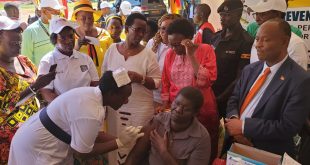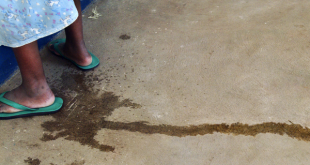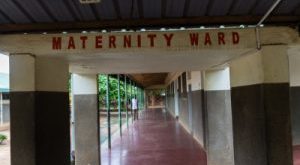
BY RICHARD DRASIMAKU
YUMBE: THURSDAY, SEPTEMBER 15, 2022
The Community Development Centre (CDC), a refugee led organization in West Nile, has launched a sh7.3b (1,918,063 euros) sustainable natural resource management project for refugee hosting areas.
The 3-year project dubbed “building peace through sustainable access to and management of natural resources in West Nile and Central Equatoria (PAMANA)” covers the districts of Yumbe and Koboko in Uganda, and Lainya and Yei Counties in South Sudan.
It is implemented by a consortium of organizations including Caritas Switzerland, Agency for Accelerated Regional Development (AFARD) and Organic Farming Advisory Organization (OFAO) while Swiss-Peace and BOMA Project provides technical capacity building.
Samuel Barnabas, the development project manager for CDC, said PAMANA will follow a human development and peace (HDP) nexus approach.
“This project aims to significantly reduce conflict over and pressure on natural resources in Central Equatoria State and West Nile sub-region through building local capacities for supporting the most vulnerable groups amongst the host, refugee and internally displaced persons,” he said.

He was speaking during the project launch at Skypa Hotel in Yumbe, an event that was attended by the sub-county chiefs, Local Council III chairpersons and district officials from both Yumbe and Koboko district.
Barnabas stressed that there will be a special focus on women with the aim of meeting their immediate needs and securing sustainable livelihoods in ways that promote peace, stability and gender-equality.
PAMANA targets 343 members of local administrative structures including local governments, religious and traditional institutions, civil society organisations and the private sector and 5,000 direct beneficiaries from most vulnerable groups among the host community, refugee and IDPs.
The project is funded by the Austrian Development Agency which is providing sh5.7b (1,500,000 Euros), Swiss Agency for Development and Cooperation which is giving sh1.5b (384,459 Euros) and BOMA project which is giving sh120m (31,604 Euros).
Jessica Ongiertho, Yumbe district’s deputy chief administrative officer, appreciated the development partners for the project saying that Yumbe in particular is grappling with challenge of environmental degradation in and around Bidbidi refugee settlement and conflicts over sharing of the natural resources between the refugees and the native community.

“Our resources are scarce and the way we exploit them is not right, that is why we are having conflicts. So, when we have programs like this coming to help us to protect and use our natural resource sustainably, I welcome it,” she said.
Asirafu Mambu, the Koboko district chairman, emphasized the importance of stumping out cross-border charcoal business as a way of reducing charcoal burning and protect the natural resource.
He said he has banned charcoal trade at Busia border market and urged his Yumbe counterpart to do the same so that charcoal burning can only be done for internal consumption within the communities.
Robert Bakyalire, the director of Programs at AFARD, said the organization is spearheading the humanitarian and development components of the project while CDC takes care of the peacebuilding component.
“Conflicts related to natural resource are some of the most prominent factors affecting people’s ability to support their livelihoods,” he said.

Bakyalire explained that in the humanitarian component, the immediate needs of the most vulnerable groups are better met due to conflict-sensitive and gender-responsive humanitarian assistance.
He said the development component develops and strengthens local capacities to create opportunities for medium and long-term livelihoods based on sustainable natural resource management practices that foster self-reliance and resilience and enable peaceful coexistence.
These include promotion of climate-smart agriculture, distribution of chicken, vegetable seeds and later provision of cash support to the beneficiary groups.
While under the peacebuilding component, the project would increase the understanding of conflict causes, especially regarding natural resource management and strengthen the capacities of the target groups and beneficiaries to facilitate dialogue, manage tensions and promote sustainable natural resource management and climate change adaptation.
To fully achieve this outcome, the CDC will deploy the “Hagiga Wahid Misinformation system” to support communities to be able to manage information and misinformation.
Hagiga Wahid (Juba Arabic for one truth) is a short messaging system (SMS) developed by CDC which responds to rumors and misinformation.
It is a time tested, interactive mobile SMS system that engages the local communities across the borders to counter rumors and misinformation to build peace and instill a positive behavioral change in the form of improved critical thinking skills where they question the credibility of any information they receive before sharing with other people.
In 2020, Hagiga Wahid sent a total of 82,680 SMS to 6,890 subscribers in both West Nile and Central Equatoria region.



